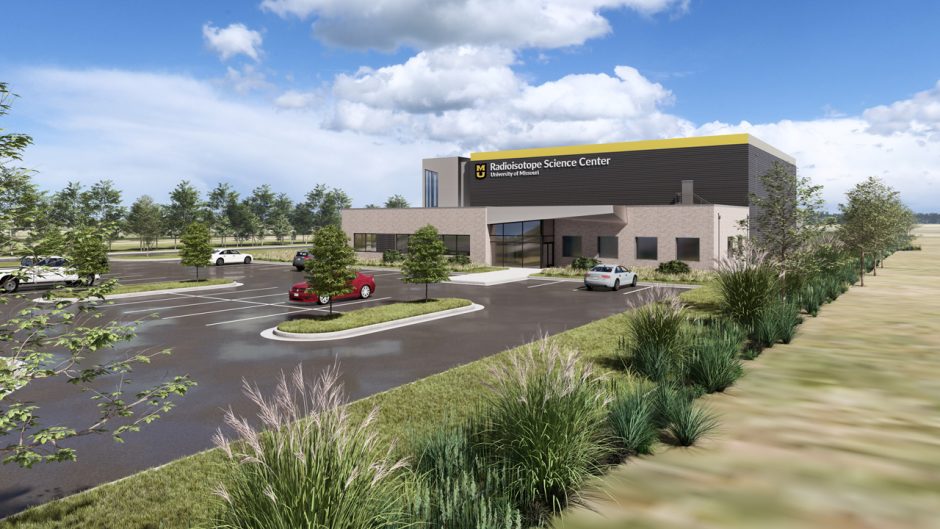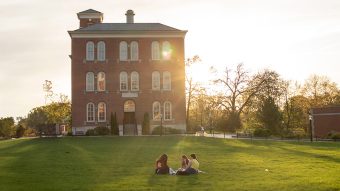
Aug. 11, 2025
Contact: Uriah Orland, uriah.orland@missouri.edu
The Department of Energy’s Office of Science is expanding its partnership with the University of Missouri through a new $20 million grant, which, when combined with a matching $20 million award from the State of Missouri, will establish the Radioisotope Science Center (RSC) at Discovery Ridge in Columbia, Missouri.
“The RSC directly leverages decades of combined experience from Mizzou and the DOE Office of Isotope R&D and Production (IRP), and, with the vital support from the State of Missouri, will significantly strengthen our domestic supply of critical radioisotopes,” said Christopher Landers, director of the Office of Isotope R&D and Production. “We anticipate this innovative facility to deliver extraordinary impacts for our Nation.”
The new state-of-the-art facility will accelerate the research, production, processing and distribution of critical radioisotopes. It will also enhance and ensure a reliable, U.S.-based supply of strategic radioisotopes supporting national security applications, enable translational research for clinical applications, enhance U.S. competitiveness in nuclear medicine, and drive key advances in scientific research. It will enable more rapid discovery of new radioisotopes and improved production techniques for cancer treatments and industrial uses. It will also enable significant workforce development in radioisotope science.
“We are proud of our strong relationship with the Department of Energy and our history of meeting the national need for critical medical isotopes,” Chair of the University of Missouri Board of Curators Todd Graves said. “The Radioisotope Science Center will be a catalyst for scientific research and innovation and further establishes Mizzou as a leader in nuclear science for the nation.”
Leveraging the experience and infrastructure at the University of Missouri Research Reactor (MURR), the RSC will be used for research, development and production of radioisotopes produced at MURR and DOE reactors. The radioisotopes will then be distributed through the DOE IRP’s National Isotope Development Center to support research and commerce. The RSC is also uniquely situated to engage, educate, and train the next generation of students and junior scientists in nuclear and radiochemistry.
“The RSC combines the expertise of Mizzou and the DOE IRP and will strengthen the nation’s supply of critical radioisotopes,” Matt Sanford, executive director of MURR, said. “We are excited about the innovative building design, which incorporates both organizations' decades of experience in radioisotope development and production.”
The 33,500-square-foot facility, projected for completion in early 2029, will be a flexible R&D, training and production facility that includes hot cell production areas for FDA-compliant current Good Manufacturing Practice (cGMP) and non-cGMP radioisotope processing. It will also feature laboratories for quality control testing and research and development, office space, cleanrooms and a shipping and receiving area.
About MURR
The University of Missouri Research Reactor’s (MURR) innovative design and operating cycle — operating year-round, 24 hours a day, 6.5 days a week, 52 weeks a year — enables MURR to produce the active pharmaceutical ingredients in multiple FDA-approved drugs and numerous radioisotopes for industry applications. Because of MURR’s unique capabilities, it is a vital resource for patients, health care providers, researchers and industrial partners in Missouri and across the globe.



